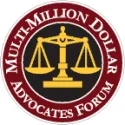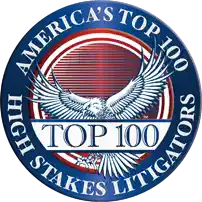A traffic ticket is a court order issued by a law enforcement officer to anyone who violates the laws. When a driver or motorist violates the state or local traffic laws, a traffic ticket will be issued. Most tickets are given for these two types of violations:
- Moving violation – This is given to vehicles that violate the law while moving, such as when exceeding the speed limit or running a red light.
- Non-moving violations include violations of law when vehicles are not mobile, such as parking violations or excessive vehicle noise.
Moving traffic violations may include the following situations:
- Speeding
- Running from a red light
- Not wearing a seat belt
- Changing lanes without using the turn signal
- Driving at night with no headlights
- Hitting a moving vehicle
Non-moving traffic violations may include the following situations:
- Paperwork violations – When you fail to have the registration and other paperwork required for driving, you may face this charge.
- Parking violations – You may receive a parking violation when you park at the wrong place or in an illegal location.
- Vehicle violations – When your vehicle is malfunctioning in an unsafe manner, you may face this type of violation. For instance, broken mirrors or missing license plates could be reasons.
You can contact a lawyer soon after the accident to avoid any further hassles. He will assist you throughout every step so that you do not land in any future trouble.
Common consequences of traffic ticket violations
Traffic violations can result in significant consequences, and you may have to suffer for them. Here are some of the consequences that an individual may have to suffer:
- Standard traffic ticket fines and penalties–
You may have to pay hefty fines because of traffic tickets and violations. The fine may vary according to the state and will depend on the seriousness of the incident. It may also depend on the individual’s driving history and any previous tickets. You can even have your license revoked.
For instance, if you have received several speeding tickets, you may have to pay a higher price fine. If the information is not clear on the ticket, you can get in touch with the police who issued the ticket or simply visit the traffic court to find out the fine details. You can connect with a speeding ticket lawyer for additional assistance.
- Increased insurance premiums–
Multiple tickets where the driver is found negligent may result in higher premium amounts. If you have received only one ticket, you may not have to pay an increased rate. The premium will depend in part on the seriousness of the offense and who was at fault.
At times, drivers do not inform their insurance agencies and fight with the police officers. All the details are already mentioned in the insurance policy terms and documents. You should read everything thoroughly to be aware of the policy for receiving multiple traffic violations.
- License suspension based on a violation–
A driver can even face a license suspension for traffic tickets. Every state has its own violation point system, and the situation may vary. The drivers usually receive penalty points for violating any law or traffic rule. Drivers under the age of eighteen may face license suspension, owing to a single traffic violation.
The rules for adults may vary, and they may not have to suffer license revocation for only one or two minor incidents. You should also note that parking tickets do not apply to license suspensions. When the number of traffic violations increase, your license may be at risk.
Drivers who are facing such situations should get in touch with legal professionals to prevent license suspensions. One can argue or challenge the basis of the ticket at the hearing stage. It is not easy, however, to get rid of such charges. That is why it is important to follow the traffic rules and avoid violating the laws. You can prevent traffic tickets by following all the guidelines. Continue reading for some tips on how you can avoid getting a traffic ticket.
Follow the rules and avoid getting a traffic ticket
Police officers generally look for vehicles that are violating the laws and driving recklessly. It is advised that you should not speed, especially when you are the only person driving a car on the road. In situations you encounter a police officer, you do not need to be nervous. You should stay calm and remain polite.
There can be various reasons why the officer issues you a speeding ticket. For instance, when you ignore traffic signals, have defective headlights, or improperly change lanes. Distracted driving, using your cell phone, loud exhaust noises, and improperly mounted license plates could also be reasons that lead to a ticket.
Therefore, you should avoid these situations to prevent the risk of receiving a ticket. If you are unfortunate one to receive one, talk to an experienced traffic ticket lawyer Philadelphia as soon as possible. You can discuss your case with legal professionals and get things done smoothly.






